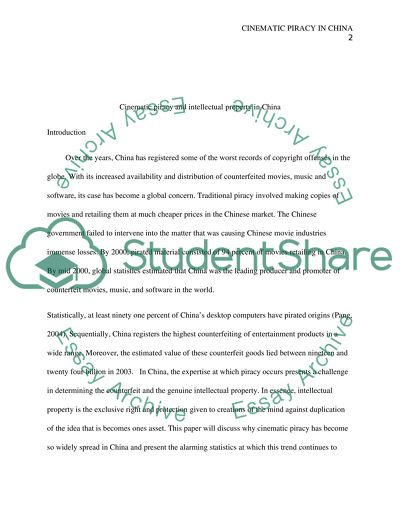Cite this document
(“Cinematic Piracy in China Research Paper Example | Topics and Well Written Essays - 2000 words”, n.d.)
Cinematic Piracy in China Research Paper Example | Topics and Well Written Essays - 2000 words. Retrieved from https://studentshare.org/journalism-communication/1464636-cinematic-piracy-in-china
Cinematic Piracy in China Research Paper Example | Topics and Well Written Essays - 2000 words. Retrieved from https://studentshare.org/journalism-communication/1464636-cinematic-piracy-in-china
(Cinematic Piracy in China Research Paper Example | Topics and Well Written Essays - 2000 Words)
Cinematic Piracy in China Research Paper Example | Topics and Well Written Essays - 2000 Words. https://studentshare.org/journalism-communication/1464636-cinematic-piracy-in-china.
Cinematic Piracy in China Research Paper Example | Topics and Well Written Essays - 2000 Words. https://studentshare.org/journalism-communication/1464636-cinematic-piracy-in-china.
“Cinematic Piracy in China Research Paper Example | Topics and Well Written Essays - 2000 Words”, n.d. https://studentshare.org/journalism-communication/1464636-cinematic-piracy-in-china.


